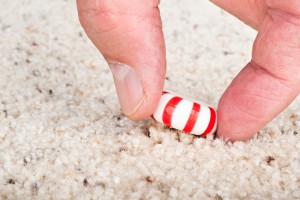Women who are pregnant are overwhelmed with joy in having the opportunity to have a child. While being pregnant 9 months, women tend to crave an immense amount of junk food. Little do they know that a diet consisting of junk food while carrying a child is extremely harmful towards the newborn. A study that was published in the Federation of American Societies for Experimental biology journal found that the babies of mothers who had a poor diet have minimal feeling to opioids and have a higher chance of overeating junk food. The mothers who ate more junk food interfered with their child’s ability to correctly answer to opioids and led them to eat more foods high in sugar and fat to receive a “good feeling”. An unborn child only receives the nutrients the mother puts into her body and depending on the diet children “good feelings” will vary. If the child relied on junk food, sugar, and fat to receive nutrients that is what they will need and crave when they are born, and soon as adults.
If a mother primarily eats junk food while pregnancy it is not the end of the world, and there are ways to avoid children being addicted to junk food. In order to stop this from happening the child will need to maintain a healthy diet post birth. Although there are ways to avoid obesity and junk food addiction in the child, they will always have a craving for the overconsumption of junk food. This study is observational because they are observing and analyzing diets of women who are pregnant and seeing the outcome of the child. This was done to help mothers and show them what are good and nutritious foods to eat while pregnant, not to scare them. Eating junk food once in a while and having portion control while pregnant is totally acceptable. A consist diet of bad foods is not good for the child or the mother.
Children can also have an increased risk at behavior problems like depression and anxiety from a mothers junk food diet during pregnancy. Researches from Norway and Deakin University watched over 23,000 mothers who were involved in the Norwegian Mother and Child Cohort study. The study recording the mothers diets from pregnancy to their child’s diets from the age of 18 months and 3 years. The mothers were also asked to take a survey about their children to see if there were any symptoms of depression, anxiety, ADHD, and more. As a result the study conducted showed that mothers who ate a junk food diet during pregnancy increased their child’s risk of having a behavioral disorder. A mother has to nurture her body with healthy good foods because what she eats is not only effecting her, it effects her baby.
http://www.medicalnewstoday.com/articles/265039.php
http://www.thebump.com/a/eating-junk-food-while-pregnant-effects-baby-more-than-we-ever-realized



















